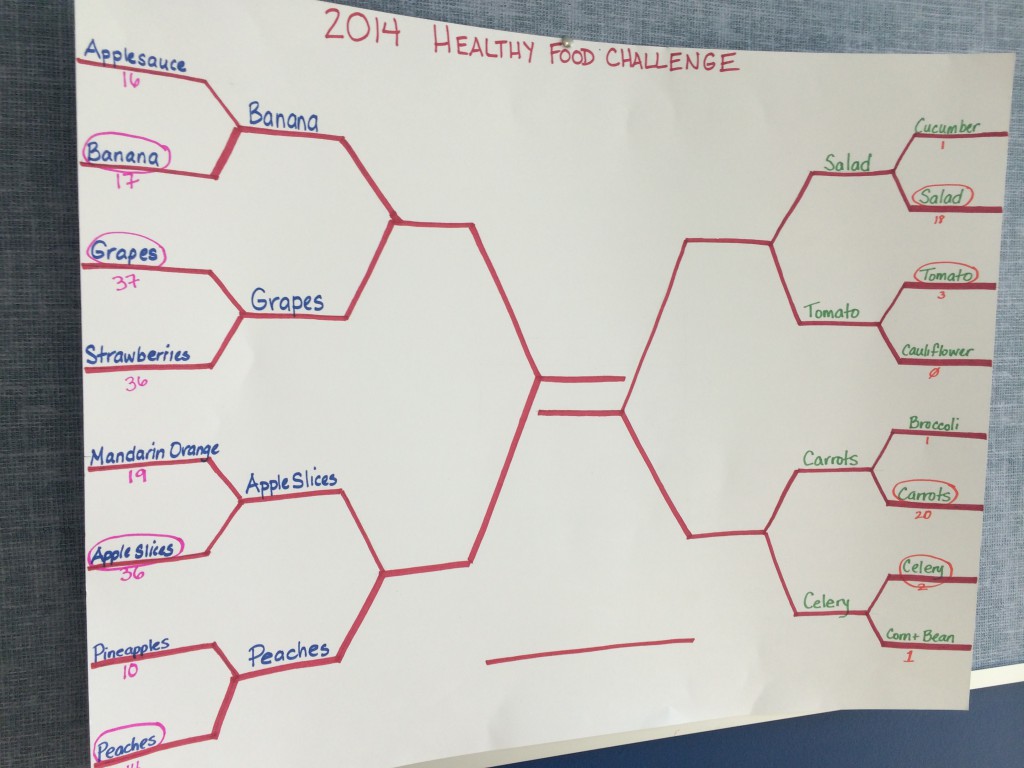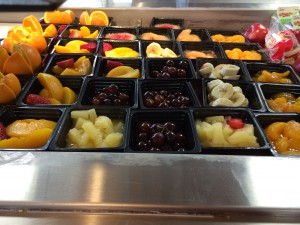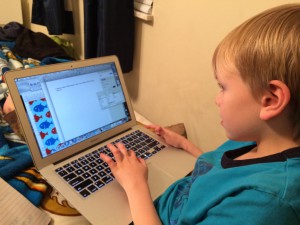It’s the perfect time of year for a healthy food challenge! March is National Nutrition Month and it’s also March Madness. So on a run, a time when I often get my best ideas, I decided it would be really cool to combine these two great activities into a Healthy Food Challenge!
Luckily our elementary school has a principal who supports healthy eating, I have a great working relationship with our PTO and the new Kids of STEEL club is a hit, and our new Food Services Director is setting a tone of cooperation with parents. So many factors came together just right for this activity.
Healthy Food Challenge:
I worked with food services to determine which eight fruits and vegetables would be available every day in the cafeteria. Then I created the match-ups, randomly setting up eight fruit opponents on one side and eight veggie opponents on the other.
We sent the brackets home in advance so kids could fill them out and turn them in. I entered all the picks into a spreadsheet to track the winners. This took a lot of time! Over 200 kids turned in brackets, that’s about 1/3 of our school population.
The first round happened today. I walked around the cafeteria for each of our three lunch periods and asked kids what fruit or veggie they wanted to vote for. They could only vote for fruits or veggies they had tasted that day at lunch.
I must admit, I was surprised how many kids claimed they had not eaten any fruits or veggies for lunch that day. Some tried to claim fruit snacks were a fruit. Not a chance. One kid tried to tell me pistachios were a fruit. As much as I love pistachios and prefer them to fruit snacks, I still had to tell her no. But I told her to keep eating pistachios.
That’s why the title Healthy Food Challenge is perfect. We are challenging the kids to get more healthy foods into their daily diets.
Winners will be chosen from the most accurate brackets. We’re also pulling a few brackets from all the entries to give away some small random prizes.
My motivation to try some fun, healthy activities at school came from listening to a webinar hosted for parents by Action for Healthy Kids. I was really excited to learn tips and techniques for working with schools to increase nutritious foods and more physical activity in the school day, especially after some unfortunately negative experiences with a “wellness committee” that didn’t do much in our district when my oldest son was in kindergarten and first grade.
We have a great district and a great school. I think there’s a lot of potential here. And our principal really supports our Kids of STEEL running program. Unfortunately I’ve also received an automated call from him asking families to support a school fundraiser where teachers work behind the counter at a local McDonald’s. That activity drives me nuts.
I still have a lot to learn about increasing wellness at our school. Luckily there are more webinars from Action for Healthy Kids coming up. I have a dream of the school having a community garden before my youngest, who isn’t even in kindergarten yet, graduates sixth grade. I’m excited to learn more about why taking away recess time as punishment is bad for academic achievement.











